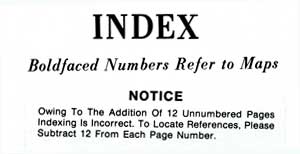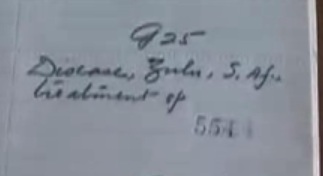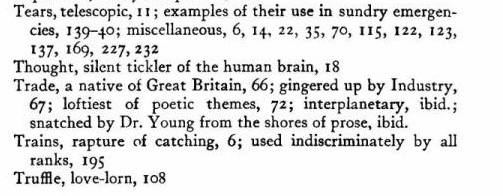Reading avoidance?
The network style of consumption -- particularly mobile consumption -- calls forward services which atomize content, providing snippets, thumbnails, ringtones, abstracts, tags, ratings and feeds. All of these create a variety of hooks and hints for people for whom attention is scarce. It has even been recently suggested that this pattern of consumption is rewiring our cognitive capacities (Carr, 2008). Regardless of the longer term implications, it is clear that people need better clues about where to spend their attention in this environment, and that this is one incentive for the popularity of social approaches. This attention scarcity is apparent also in the academic environment where a bouncing and skimming style of consumption has been observed (Nicholas, et al., 2006). Palmer, et al. (2007) talk about actual 'reading avoidance'. Researchers may survey more material, but spend less time with each item, relying on abstracts and other content clues to avoid reading in full.
"Other content clues" - could be indexing, and could be a selling point.
Free copies of things vs. eight things you will buy
Immediacy
Personalization
Interpretation
Authenticity
Accessibility
Embodiment
Patronage
Findability -- let's seriously take note of this one.... Where as the previous generative qualities reside within creative digital works, findability is an asset that occurs at a higher level in the aggregate of many works. a zero price does not help direct attention to a work, and in fact may sometimes hinder it. But no matter what its price, a work has no value unless it is seen; unfound masterpieces are worthless. When there are millions of books, millions of songs, millions of films, millions of applications, millions of everything requesting our attention—and most of it free—being found is valuable.
Just subtract a bit and the index will work

From "Tracking Ghost Railroads of Colorado" by Robert M. Ormes. 1975 Century One Press, Colorado Springs.
Indexing the Golden Bough

The death of taxonomy?
On this
first day of 2009, I thought I’d take a moment to
reflect on the CMS Watch list of predictions for
2009. Getting big play in the top 3 is “Taxonomies
are dead. Long live metadata!”
"With social computing coming to the fore, it’s never
been more obvious that everyone does not, and will
never, categorize things in the same way. It doesn’t
even matter what’s correct anymore… I will assert
that the days of the traditional, definitive, and
single-hierarchy taxonomy are long behind us."
I think that this is accurate — insofar as it uses
the traditional, definitive and single-dimension
definition of taxonomy that ought to be left in the
dust along with corded telephones and dot matrix
printers. I mean, I can’t even remember ever building
a taxonomy that was meant to be traditional or had a
single-hierarchy.
The term “taxonomy” has grown to mean so much more
than this… We use taxonomy in a very broad sense -
suggesting that all metadata comes from the taxonomy.
Everything is about classification and structure.
Certainly “taxonomy” has become an abused term. They
say taxonomy when they want their information world
to be a better place. There is a comforting, ordered
ring to the term. It sets all things in the world in
their proper place.
There's a lot more Stephanie talks about, how business people don't get metadata, and how the term taxonomy is evolving, not dying - I highly recommend reading the post and the blog when you can! There are a lot of great articles in the archives as well.
Jack London and Jules Verne
"We are surely not surprised to learn that Jules Verne gathered and systematically stored information in the fields of geography, natural science, and technology in his well organized collection of 20,000 cards and excerpts. However, it is somewhat unexpected to find, upon visiting the country house of Jack London in Glen Ellen near San Francisco, 188 card-index boxes alongside the writing desk of this writer who had an image of sailor, trapper, and adventurer."
-- V. Stibic, Tools of the Mind, Techniques and Methods for Intellectual Work, p. 77.
Love-lorn truffles and other delights

Why do I never get such books to index?